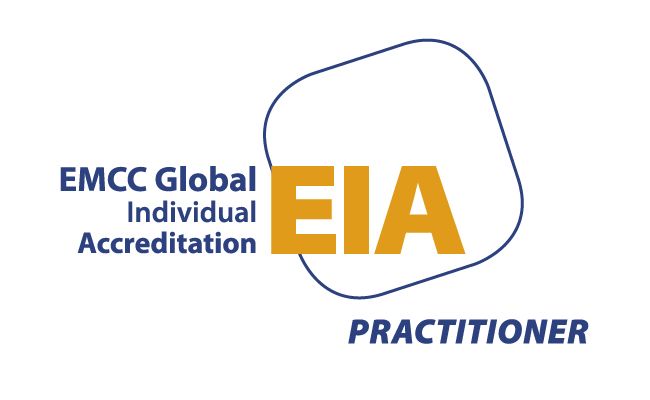New Leaders Listen Up
Barbra Carlisle • March 5, 2025
New to Leadership - Here is what no one tells you... until now

You stepped into a new role—congratulations!
But if you’re anything like most new leaders, at some point, you’ve probably had that sinking feeling…
“Am I ready for this?”
“What if I mess up?”
“What have I done—get me out of here!”
You’re not alone.
The reality is, stepping into leadership can feel like being thrown in at the deep end—expected to make big decisions, manage complex dynamics, and lead with confidence, all while trying to prove yourself.
But here’s the truth: You don’t have to have everything figured out on day one.
The Hidden Challenges of Being a New Leader
Every great leader has been exactly where you are. And while people might not talk about it openly, the first months in a leadership role are often a mix of excitement, uncertainty, and self-doubt.
The weight of decision-making feels heavier than expected. It’s one thing to have ideas—it’s another to make the final call.
You suddenly feel like you should have all the answers. But the reality? The best leaders ask great questions, not just give great answers.
You worry about being “found out.” Imposter syndrome is real—research from KPMG found that 75% of executives have experienced it at some point in their careers.
You’re managing people who might know more than you. And that can be intimidating, especially if you’re leading former peers or experienced team members.
For different leadership personalities, the struggles show up in different ways:
• The Guardian
in us worries about making the wrong call and disrupting stability.
• The Creative
in us has big ideas but struggles with the reality of execution.
• The Connector
in us focuses on relationships but might hesitate to set boundaries.
• The Nurturer
in us wants to support everyone but may avoid difficult conversations.
• The Pioneer
in us pushes forward but risks leaving the team behind.
What the Research Says: Leadership Takes Time
Confidence isn’t instant—it’s built over time. A study from Harvard Business Review found that leaders who focus on small wins each week build confidence and resilience faster than those who expect immediate success.
Most new leaders struggle with imposter syndrome.
A survey by the International Coaching Federation found that over 70% of new managers experience self-doubt in their first year.
Clarity comes with experience. Research from McKinsey shows that leaders who actively seek feedback and coaching in their first 6–12 months adapt faster and make better long-term decisions.
So, How Do You Lead with Confidence (Even When You Feel Unsure)?
1. Accept That You Don’t Have to Know Everything
Your job isn’t to have all the answers—it’s to ask the right questions, listen well, and make thoughtful decisions.
Try this: Instead of pressuring yourself to “know it all,” start each day by asking:
- What’s one thing I can learn today?
- Who can I ask for insight or advice?
2. Build Relationships, Not Just Authority
Your influence as a leader comes not from your title but from trust. Spend time getting to know your team, their challenges, and what they need to thrive.
Try this: Set up 1:1 check-ins with key team members—not just to talk work, but to understand their motivations and perspectives.
A Gallup study found that leaders who build strong relationships with their teams see 50% higher engagement and performance.
3. Set Boundaries Early
New leaders often fall into the trap of trying to do everything—which leads to burnout. Boundaries are key to sustainable leadership.
Try this:
- Be clear about working hours (for yourself and your team).
- Prioritise ruthlessly—not every issue is your issue.
- Practice saying no with confidence.
Research from Stanford found that leaders who set clear boundaries experience 35% lower stress and make better long-term decisions.
4. Seek Out Feedback—But Don’t Take It Personally
Feedback isn’t a sign you’re failing—it’s a tool for growth. Great leaders actively seek it, but they don’t let criticism shake their confidence.
Try this: Ask your team, “What’s one thing I could do better as your leader?” and listen with curiosity, not defensiveness.
A study in the Journal of Applied Psychology found that leaders who regularly ask for feedback improve their effectiveness by 22% within the first year.
5. Play the Long Game—Leadership Is a Marathon, Not a Sprint
You don’t need to have it all figured out today. Focus on consistent, small improvements rather than overnight success.
Try this: End each week with a reflection: What’s one thing I learned? What’s one thing I want to improve next week?
Research from MIT Sloan found that leaders who engage in weekly reflection are 25% more effective in decision-making and team leadership.
Final Thought: You’ve Got This
It’s okay to feel unsure. Every leader starts somewhere. What matters isn’t perfection—it’s your willingness to learn, adapt, and lead with intention.
So, if you’re in the early stages of leadership, or supporting someone who is, remember:
✔️ You don’t have to be perfect to be effective.
✔️ Your team values authenticity more than authority.
✔️ The best leaders grow into their roles—one step at a time.
What’s one thing you’ll focus on this week to step into leadership with confidence?

Introduction Going down to London a couple of weeks ago I was looking forward to putting on a good podcast and ignoring everything and everyone around me. That is until a woman, Melanie, came and plonked down next to me, with her pile of papers and her phone ringing. Once she had taken the call, she smiled at me, I smiled back and this led to a 2 and half hour conversation on all things from professional development to managing long distant relationships. I got off the train more energised, connected and ready for the day than if I had stuck my headphones in. We arranged to meet for a coffee back in Liverpool. Why am I telling you this? Because in business, we often talk about the importance of networks and collaboration—but what if some of the most transformative insights come not from your inner circle, but from a stranger on a train, a chance encounter at a conference, or a casual conversation over coffee? The Research A recent UK study from the University of Essex (Sandstrom et al., 2022) showed that small talk with strangers can significantly improve mood, empathy, and creativity. More importantly, these fleeting interactions often lead to the sharing of ideas that would otherwise remain siloed. In a time when innovation and agility are everything, this matters. Another UK study by Nesta (2019) on innovation diffusion found that ideas spread faster in communities where “weak ties” are strong—those acquaintances and peripheral connections that sit just outside our usual networks. They introduce novelty and challenge groupthink, something every CEO navigating complexity should pay attention to. The Leadership Lens When I work with CEOs, those in peer networks always value that outside in perspective, a fresh set of eyes. When I interviewed Tom Morgan for The Unlikely Executive Podcast he highlighted the power of talking to absolute strangers. His stranger was on the side of a soccer pitch. Showing that real breakthroughs can happen when you put down your guard and just share what your thoughts and ideas are. The 5 Voices framework reminds us that each person has a unique voice—and when we only surround ourselves with people who speak “like us,” we lose access to vital perspectives. When leaders only stay within their trusted circle, something important is lost. You may protect consistency and control (a strength of the Guardian), but you risk missing the unexpected insight that could change everything. Often, it’s the Creative or Connector in the room who first sees the value in an offhand comment or a half-formed idea. These seemingly small conversations—ones we often don’t prioritise—are where innovation is born.” The Call So here’s an invitation: be deliberate about bumping into brilliance. Attend a meet-up that’s outside your industry. Talk to a stranger, say hello as a starter! This method was used by Mel Robbins to great effect when she moved home and is outlined in her brilliant book Let Them. Most of all, create cultures where your team talks beyond their silos too. You might be surprised by where the next big idea comes from—and who it comes from. Curious what kind of conversations might unlock new thinking for you as a leader? Let’s talk. barbra@gleecoaching.com

Introduction Starting a business with friends is thrilling. There is an overarching sense of relief that you don't have to do it alone -you can do it with your bestie! yay! Fast forward 18 months, and the Yay! can turn into Nay! Misaligned expectations, unspoken assumptions, and personality clashes often threaten what was once a shared vision. How can co-directors stay aligned—and stay friends? The Research The UK’s ScaleUp Institute (2022) found that the biggest internal challenge to scale-up growth isn’t funding or sales—it’s leadership alignment. Misalignment at the top leads to strategic drift, team confusion, and burnout. The London Business School’s study on entrepreneurial team dynamics (Lechler & Ensley, 2021) highlights that psychological safety, clear communication, and complementary leadership styles are essential for co-founder success. The Voice of Alignment Most founder teams don’t fall apart because they disagree on what they want to build. It’s how they build it—how they make decisions, how they handle conflict, how they communicate under pressure. One founder might lead with relentless vision, what I call the Pioneer perspective, while another is carefully evaluating risk (taking a Guardian perspective). One might want harmony above all else (Nurturer), and another thrives on energy and visibility (Connector). The key is not to flatten those differences, but to name and honour them.” As a co-director of a brilliant social research agency Michael and I were super excited when we set out - we even got to take clients with us! Yay! However our personalities and life stage were so so different that tensions started to arise. - One of us wanted to renegotiate the agreed starting salary - one of us didn't - One of us was a laissez faire leader, one of us wasn't - One of us put our people first, one of us didn't - One of us blended work with social life, the other just wanted to go home and be with their family - One of us was single and footloose, one of us was married with responsibilities. None of the above were unresolvable but we were unable to resolve due to lack of appreciation of each other, and pressures from around us. I wish I had sought out the support of a coach, I would have loved it if we had both had coaching before it was too late. The Call If you’re building something with someone you respect and care about, take the time to build how you build. A business plan is vital—but so is a relationship plan. Talk to one another about your needs and desires, and share your observations on how you think the relationship, not just the business is going. Let’s ensure your founding team is aligned not just on the product, but on purpose, pace, and process. If you want to run through your thoughts get in touch with me, I would love to be able to help you, and your friend, be totally awesome! https://zcal.co/barbracarlisle/30min


